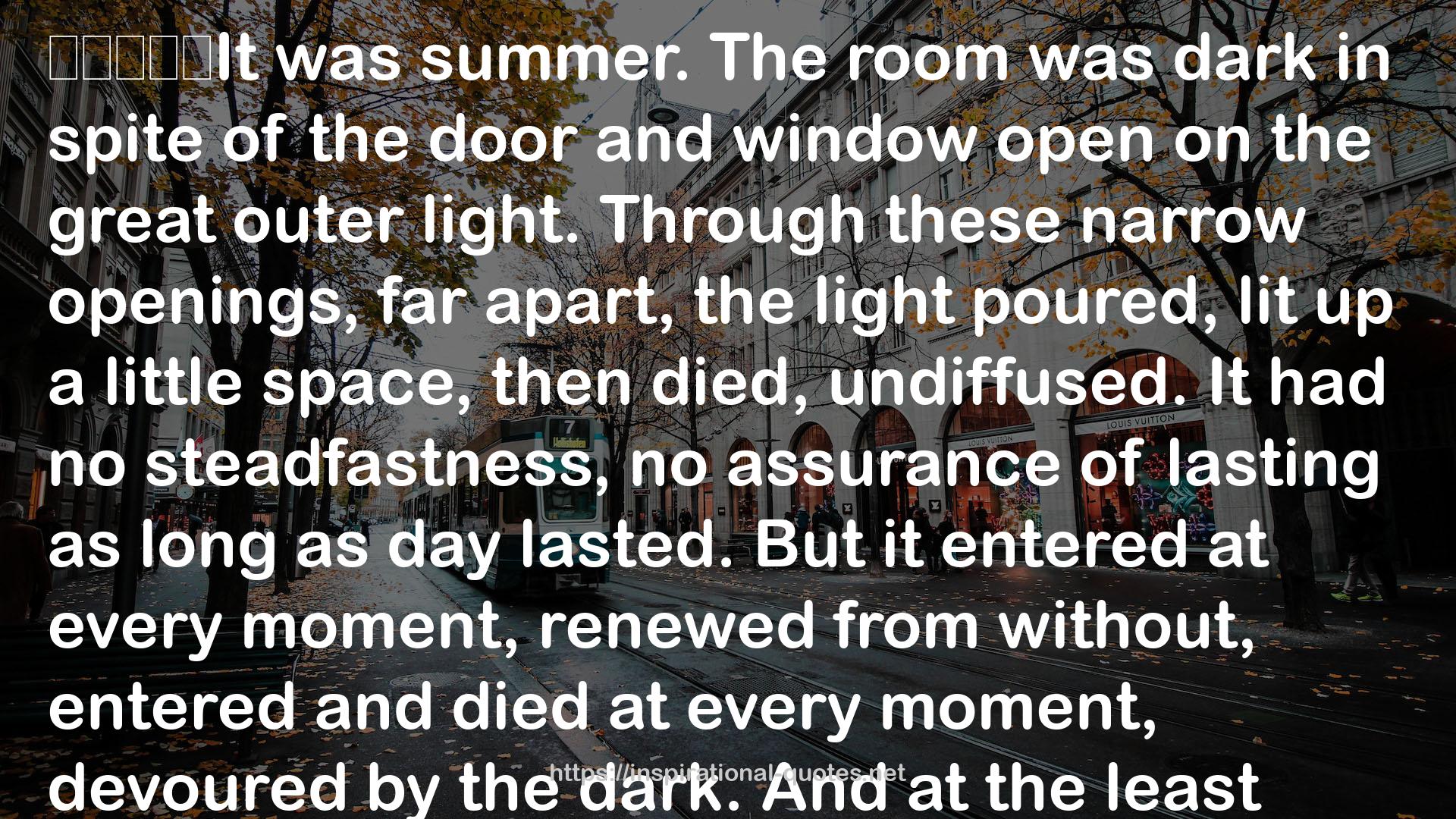" It was summer. The room was dark in spite of the door and window open on the great outer light. Through these narrow openings, far apart, the light poured, lit up a little space, then died, undiffused. It had no steadfastness, no assurance of lasting as long as day lasted. But it entered at every moment, renewed from without, entered and died at every moment, devoured by the dark. And at the least abatement of the inflow the room grew darker and darker until nothing in it was visible anymore. For the dark had triumphed. And Sapo, his face turned towards an earth so resplendent that it hurt his eyes, felt at his back and all about him the unconquerable dark, and it licked the light on his face. Sometimes abruptly he turned to face it, letting it envelop and pervade him with a kind of relief. Then he heard more clearly the sounds of those at work, the daughter calling to her goats, the father cursing his mule. But silence was in the heart of the dark, the silence of dust and the things that would never stir, if left alone. And the ticking of the invisible alarm-clock was as the voice of that silence which, like the dark, would one day triumph too. And then all would be still and dark and all things at rest for ever at last. "
― Samuel Beckett , Malone Dies
